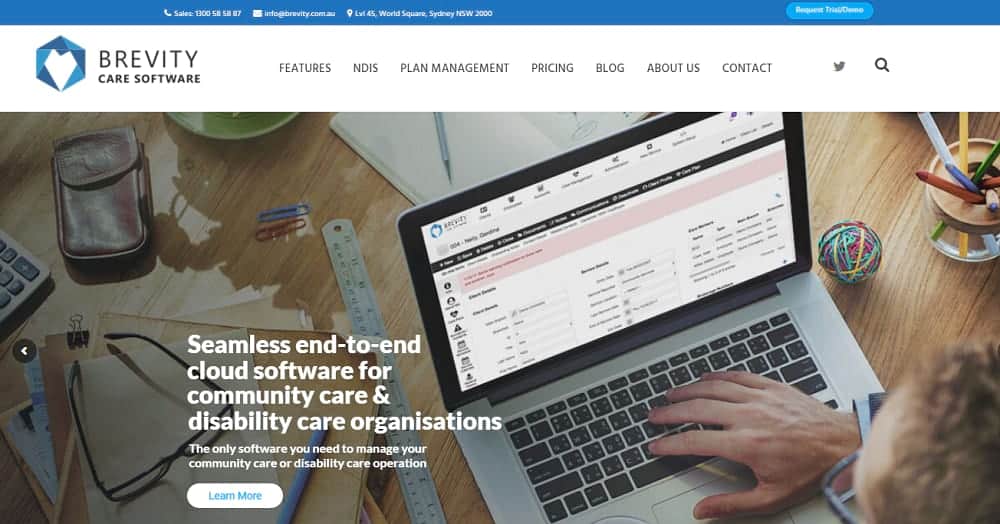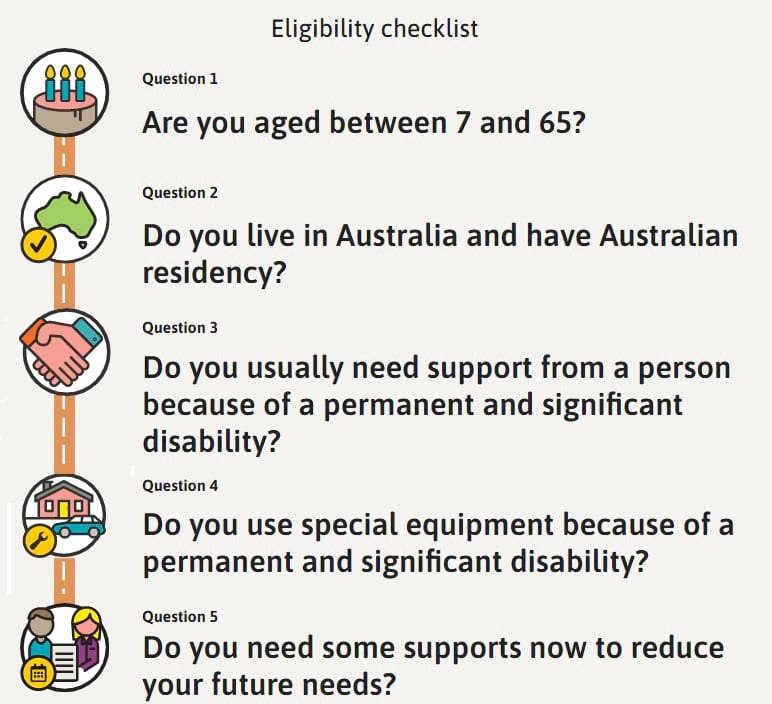
When it comes to NDIS support, autism is well catered for. Receiving a diagnosis of autism can cause a lot of uncertainty and worry. Living with autism feels so much more than living with a mere diagnosis.
We all have our unique irks and quirks, talents, abilities and life goals. And people with ASD are no different.
The diagnosis of autism can evoke a myriad of questions. What does the future hold? What supports will help? How do I choose which way to go?
Help is at hand.
What will NDIS fund for autism?
The NDIS funds reasonable and necessary supports for people living with Autism Spectrum Disorder (ASD). Indeed, the three main goals of this funding are to help individuals:
- achieve their life goals and aspirations
- increase independence
- improve particiption in society as well as the economy.
Will NDIS fund autism assessment and How Do I Know If I Am Eligible for NDIS Autism Funding?
To be eligible for an NDIS plan, a person living with autism is required to satisfy the following criteria:
- Have a permanent disability that significantly affects their ability to take part in everyday activities
- Be aged less than 65 when they first access the scheme
- Be an Australian citizen, live in Australia and hold a permanent or a Protected Special Category visa
Did you know that ASD is the biggest disability category funded by the NDIS? This means when you are in the process of accessing funding for a loved one with autism, you are not alone.
Process To Access NDIS Autism Funding
Turns out, accessing funding for autism is not so difficult. The process to access funding is outlined below:
- First, ensure that the individual meets the NDIS eligibility checklist.
- Second, download and fill out an NDIS Access Request Form. Include supporting evidence to validate your request.
- If you are applying on behalf of a child aged 7 or younger, you will need to connect with an Early Childhood Early Intervention (ECEI) Partner as part of the NDIS autism funding application process.
- If you are applying on behalf of anyone over aged 7 and above, you need to contact a Local Area Coordination (LAC) Partner.
With the application process completed, it’s time to shift gears and take part in a planning meeting. Through the meeting, you will set goals and develop a plan that includes the appropriate type of supports for the individual’s unique needs.
NDIS Autism Levels
It is important to note that not all individuals with autism will be able to access NDIS funding. It is actually dependent on the level of autism the person is diagnosed.
If it is determined that the person with autism has Level 2 severity, they require substantial support to function in their day-to-day life. Similarly, Level 3 severity requires very substantial support. Both of these levels are most likely to attract NDIS funding.
For more information, you can refer to NDIS List A which sets out the conditions likely to meet the NDIS autism funding.
If the person is assessed as meeting a Level 1 ASD diagnosis, they require some support to function in everyday life. This level of diagnosis alongside Asperger syndrome, childhood autism, and developmental disorders may require further assessment to determine eligibility for NDIS autism funding.
How Does the NDIS Support People with Autism?
Broadly speaking, the NDIS helps people with autism to access supports that assist them to meet their unique goals, increase independence and improve their social interaction. NDIS assists people with ASD with the provision of the following interventions:
- a speech therapist
- occupational therapy to improve fine motor skills and concentration levels
- personal care support for help when showering, toileting, dressing, eating, etc.
- behavioural support to develop skills with relationship building as well as behaviour management
- a nutritionist to help with developing healthier eating habits
If you are applying for NDIS funding on behalf of a child with autism aged 7 years or younger, you should do so in line with the NDIS Early Childhood Approach. This approach aims to:
- provide early and ongoing intervention
- facilitate access to the right types of supports
- empower you with information about the best practices to help you support the child
- develop the child’s ability to pursue the things they need or want to do throughout the day
- improve the child’s participation with mainstream services like childcare or schooling

Looking for NDIS Funding Autism?
NDIS aims to provide funding support for individuals to function more independently in their everyday lives. People with autism have unique needs that require specialized supports to help them achieve their life goals.
Where the NDIS comes in and provides a powerful platform to help families discover the next step forward on the wonderful journey of their life with autism.
When you are in the process of accessing NDIS funding for someone with autism, you are working in their best interests. And Brevity Care is a software provider continually looking out for the best interests of their customers.

Brevity works with NDIS providers to supply industry-leading software tools for NDIS providers. Our mission is to make managing your NDIS business affordable, time-efficient and more streamlined.
This makes the clients’ lives better and NDIS businesses more efficient. Which results in greater profits for NDIS providers and greater attainment of life goals for their clients.
Originally published Nov 30 2021
Frequently Asked Questions
Yes, it does. In fact, autism spectrum disorder (ASD) is the single biggest disability category funded by the NDIS.
If the person is assessed as meeting a Level 1 ASD diagnosis, they require some support to function in everyday life. This level of diagnosis alongside Asperger syndrome, childhood autism, and developmental disorders may require further assessment to determine eligibility for NDIS autism funding.
They most certainly do. If you are applying on behalf of a child aged 7 or younger, you will need to connect with an Early Childhood Early Intervention (ECEI) Partner as part of the NDIS autism funding application process. If you are applying on behalf of anyone aged 7 and above, you need to contact a Local Area Coordination (LAC) Partner.
NDIS participants with autism generally receive around $32,000 per year in NDIS funding. Children aged 7 or younger receive an average of about $16,000 per year under the NDIS.





